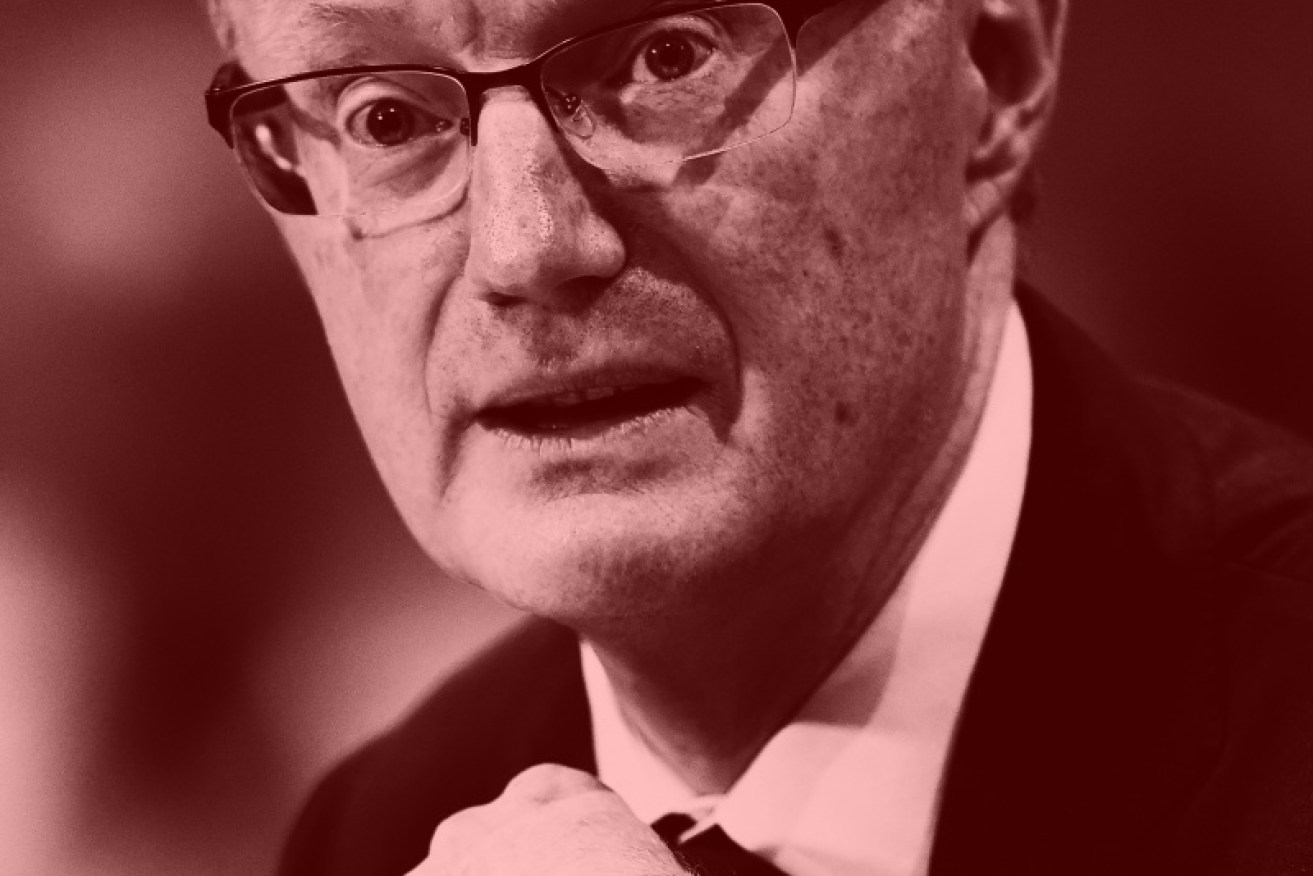Don’t do it Phil: more rate cuts are folly

RBA governor Philip Lowe warns of rising household debt, and says income growth is crucial. Photo: Getty
A chorus of experts are imploring the Reserve Bank of Australia to step away from the precipice of even lower interest rates.
The central bank will announce its November decision minutes before the Melbourne Cup is run on Tuesday. Few expect a cut.
But it’s not impossible. Annual inflation is currently 1.3 per cent, well below the central bank’s medium-term target band of 2-3 per cent.
Some are taking the long-shot bet. Six of 27 economists surveyed by Bloomberg, three of 14 by AAP, and three of 33 by finder.com.au put their money on a long-odds cut.

Successive rate cuts have stoked household debt to dangerous levels, warns Dr Alex Joiner at IFM Investors. Photo: Twitter
Dr Alex Joiner, chief economist at IFM Investors, hopes they’re wrong.
Australia’s central bank should refuse to follow Europe, Japan and Scandinavia down the path to zero per cent rates and beyond. Instead, it should keep its powder dry for an emergency, such as a Trump presidency or Chinese debt crisis, Dr Joiner told The New Daily.
“There is a risk the Reserve Bank will cut rates further, but in my opinion the marginal gain in terms of stimulus to the economy, which is really what they’re trying to do, is considerably less at this point in this cycle,” the economist said.
“It’s almost like we’re at the end of what we can do with monetary policy, and I don’t think the Reserve Bank would find it in any way appetising to get down to where other central banks around the world are in terms of their interest rates settings.”
The RBA has cut the cash rate by a total of 325 basis points since November 2011, bringing it to a record low of 1.5 per cent, where it has remained since August. And yet, unemployment and underemployment are still high, and wage growth, GDP growth and inflation weak.

Interest rates are plummeting across the globe. (Click graphic to expand)
According to Dr Joiner, the cuts have failed to encourage businesses to employ and invest, and haven’t dragged down the unhelpfully high value of the Australian dollar. All they’ve done, in his opinion, is dangerously inflate Australia’s debt-to-GDP ratio by fuelling mortgage borrowing.
Outgoing central banker Malcolm Edey, who recently retired after an almost 40-year career at the RBA, shares this view. He told the Australian Financial Review on Monday “you can’t cut interest rates any further”.
Even the new RBA governor, Dr Philip Lowe, seems to reluctantly agree rate cuts haven’t worked.
During a parliamentary hearing in September, Governor Lowe lamented that governments and the private sector are not using low rates to invest in transport infrastructure and other productive assets, and thus are not stimulating growth as central banks intended.
“The reason why monetary policy is not working globally is that no one wants to use the low interest rates to increase their spending,” the Governor said.
Vimal Gor, head of income and fixed interest at BT Investment Management, Westpac’s wealth management arm, is another vocal critic of further cuts.
Mr Gor wrote in BT’s latest newsletter that central banks around the world are “pushing on a string” by persisting with rate cuts and quantitative easing when the underlying causes of anaemic growth are “largely immune” to monetary policy.

Philip Lowe admits governments and businesses are not responding to low rates as desired. Photo: Getty
Demographic change, declining productivity and falling world trade are the true causes, and can only be fought with fiscal policy, Mr Gor wrote.
The fiscal policy favoured by IFM’s Dr Joiner is the use of very low interest rates by federal and state governments to borrow to build public infrastructure.
This would serve the dual purpose of boosting economic growth while creating jobs for workers left behind by the end of the mining boom and the expected slowdown of the residential construction boom in 2017-18, Dr Joiner said.








